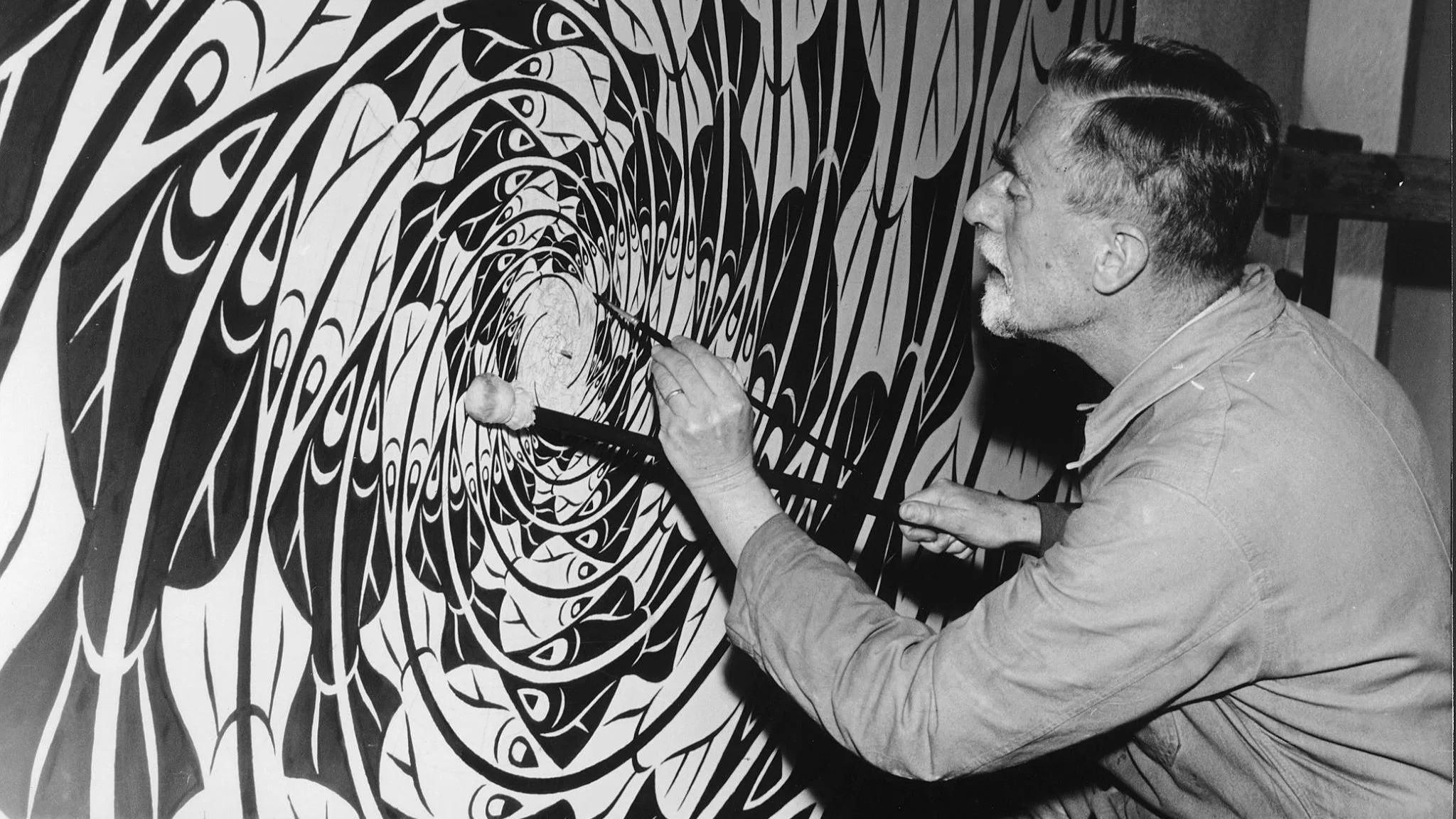Escher: Journey to Infinity
Portrait of a graphic artist whose reputation may yet rise further.
There’s a liveliness of tone in this film by Robin Lutz that you rarely find in documentaries about artists, but that’s apt because the Dutchman M.C. Escher (1898-1972) was no ordinary artist. Indeed, as the musician Graham Nash of Crosby, Stills & Nash tells us, when he contacted Escher in the 1960s to express his admiration what he received back was a declaration that Escher believed himself to be a mathematician rather than an artist. Nevertheless, the view expressed in this film is that he was indeed an artist, albeit an unorthodox one. It is suggested that his originality as a printmaker was so far ahead of its time that it baffled his contemporaries and that even now it is entirely conceivable that full recognition of his genius still lies in the future.
There are certainly some standard elements in Lutz’s film since it does offer a sketch of Escher’s life and two of his sons, now in their eighties, appear in person to provide their recollections. However, the main emphasis here is on the prints themselves and Lutz has turned to the words of Escher himself to reveal the aims that lay behind them. A prominent title seen at the very start declares that we will hear Escher’s own words taken from his letters, diaries and notes with Stephen Fry speaking them. What we get is less a reading than a performance. Not everyone will immediately warm to that even though it adds to the impact of a film which is never stuffy and seeks to capture both the adventurous spirit and the tetchy responses of Escher that were part of his marked individuality.
Much of the time we see examples of the work accompanied by comments that do indeed give us an insight into Escher’s unique world, one that was influenced by the patterns of mosaic tiles seen in the Alhambra in Granada and which developed by way of personal investigations of tessellations and a fascination with the possibilities of metamorphosis. Tellingly, Escher refers to his admiration for the music of J.S. Bach which with its elaborations of themes in varied forms does offer a parallel and even carries a hint of the quest for an implied infinity that is central in Escher’s work (his prints regularly discourage any sense of closure and are designed to encourage the eye to move in a way that ultimately leads one back in again thus suggesting endlessness). Lutz even applies animation to clarify some of Escher’s ideas (as it happens Escher was an admirer of Walt Disney). Elsewhere Escher’s words provide evidence that he was driven by tremendous depth of feeling linked to ideas that almost defied being visualised to the full.
Since in his approach to his art Escher disdained colour, it is ironic that in the 1960s his fame spread when hippies in America latched on to his work and relished versions of it that were garishly coloured. The film too makes use of colour (of a much less garish kind) in that it doesn’t hesitate to please in the sequences dealing with Escher’s life by showing us scenery in such countries as Holland, Switzerland, Spain and Belgium. Snippets of classical music are neatly fitted in too. More original are visuals such as those in St. Bavo’s Church, Haarlem, which fully indulge Escher’s imaginings as described in his own words. Such details are very much part of what makes this such a decidedly individual art movie. Escher himself believed that all prints fails to some extent because he recognised that he was always in quest of images that could not be fully realised. Nevertheless, the film provides a real insight into a man who uniquely gave us creations that hover in terms of what inspired them somewhere between mathematics and art.
Original title: Escher: Het Oneindige Zoeken.
MANSEL STIMPSON
Featuring George Escher, Jan Escher, Liesbeth Escher-Hogenhout, Graham Nash, and featuring the voice of Stephen Fry.
Dir Robin Lutz, Pro Robin Lutz, Screenplay Marijnke de Jong and Robin Lutz, Ph Robin Lutz, Ed Moek de Groot.
Robin Lutz AV Productions-Munro Film Services.
81 mins. The Netherlands. 2018. Rel: 13 August 2021. Cert. PG.


